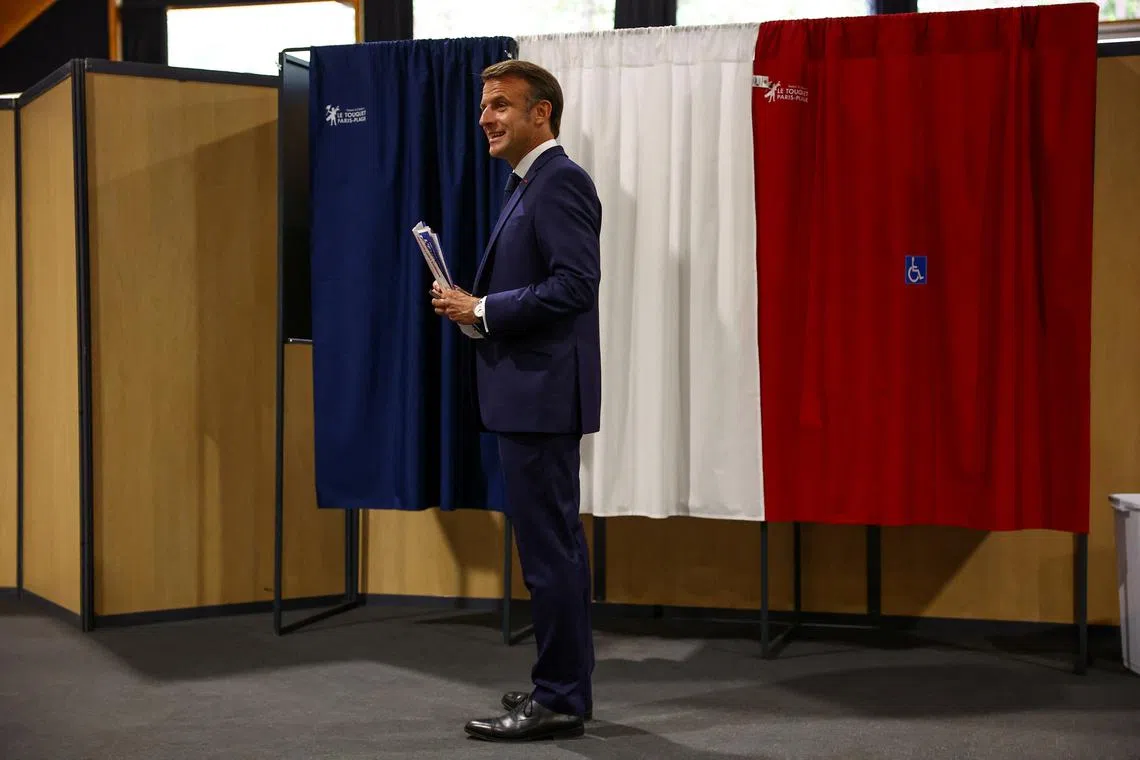France enters election mode after far-right win in European Parliament vote
Sign up now: Get ST's newsletters delivered to your inbox

French President Emmanuel Macron's decision to call a snap election could neuter his presidency three years before it ends.
PHOTO: REUTERS
PARIS - France began to gear up for elections on June 10, after President Emmanuel Macron called a shock snap legislative election following a bruising loss in the European Parliament vote to the far-right party of Marine Le Pen.
Mr Macron’s unexpected decision,
“This will be the most consequential parliamentary election for France and for the French in the history of the Fifth Republic,” Finance Minister Bruno Le Maire told RTL radio.
The legislative vote will take place on June 30, less than a month before the start of the Paris Olympics, with a second round on July 7.
The result is hard to predict. The outcome will likely depend on how committed leftist and center-right voters are to the idea of blocking the far-right from power.
Analysts said Mr Macron’s decision is aimed at making the best of his weak position, reclaiming the initiative and forcing Ms Le Pen’s National Rally (RN) into election mode faster than it would have liked.
Mr Macron’s surprise move appeared to have caught some far-right leaders off-guard.
“We didn’t think it would be immediately after the European elections, even if we wanted it to be,” the deputy chairman of the RN, Mr Sebastien Chenu, said on RTL Radio.
“Elections are rarely a gift and in this context, they aren’t,” he added.
He called for right-wing lawmakers from outside the RN to swell its ranks in its battle to beat Mr Macron, and said the party's telegenic president, 28-year-old Jordan Bardella, would be its candidate for prime minister.
Led by Mr Bardella, the RN won about 32 per cent of the vote on June 9, more than double the Macron ticket’s 15 per cent, according to exit polls. The Socialists came within a whisker of Macron, with 14 per cent.

Led by Mr Jordan Bardella, the National Rally won about 32 per cent of the vote on June 9.
PHOTO: REUTERS
Mr Macron's Renaissance party currently has 169 lower house lawmakers, out of a total of 577. The RN has 88.
If the RN wins a majority, Mr Macron would still direct defence and foreign policy, but would lose the power to set the domestic agenda, from economic policy to security.
“We’re going for the win,” a source close to Mr Macron said, adding that the president hoped to mobilise voters who had abstained from voting on June 9.
“There’s audacity in this decision, risk-taking, which has always been part of our political DNA,” the source added. REUTERS


